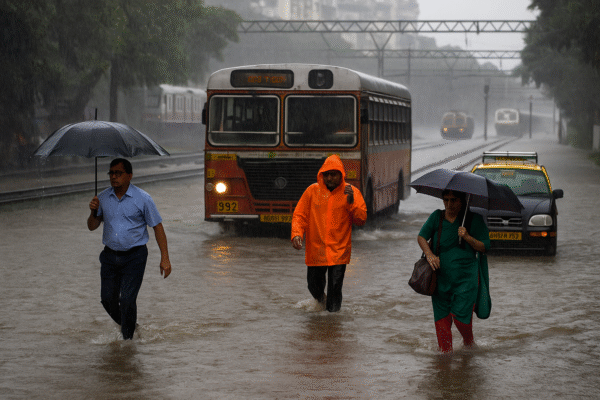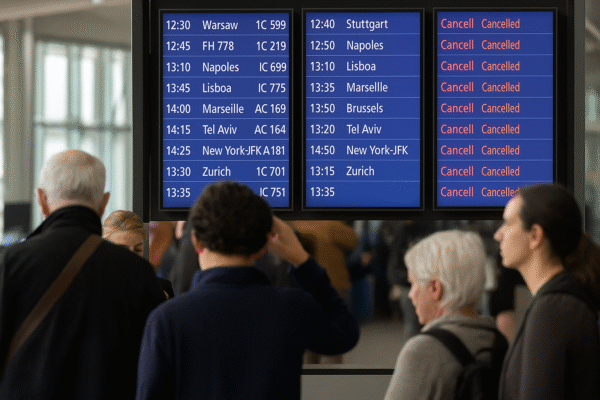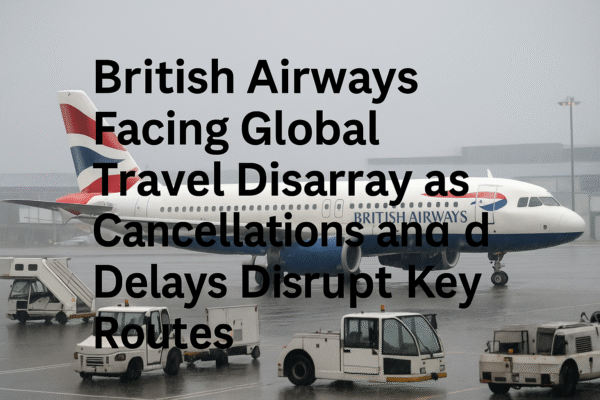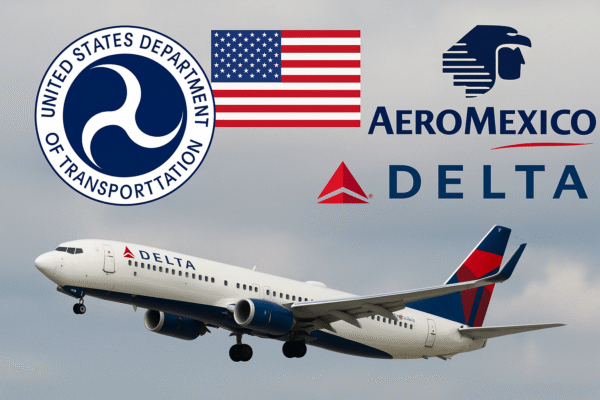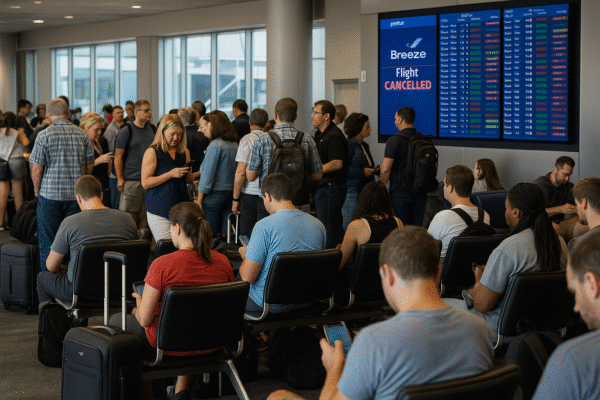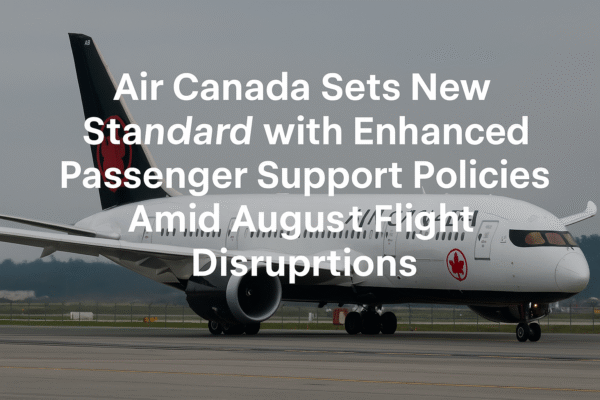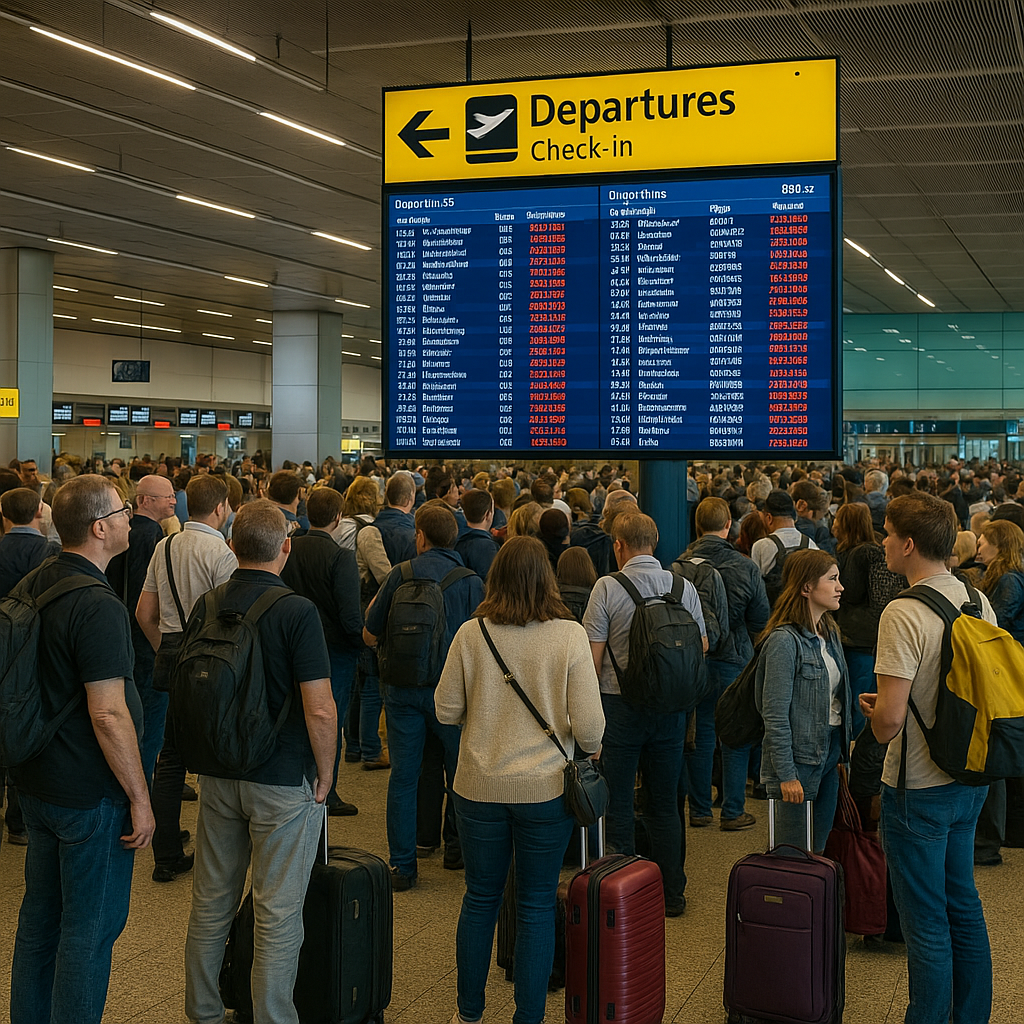Drone Threats Trigger Emergency Flight Bans Across Russia’s Busiest Airports
Emergency flight restrictions have paralyzed air traffic across four of Russia’s most important airports—Sheremetyevo, Domodedovo, Zhukovsky, and Pulkovo—after drone incursions were reported near heavily trafficked air corridors. The disruption comes amid growing concerns over aviation safety in the face of increasing unmanned aerial vehicle (UAV) threats.
The Russian Federal Air Transport Agency announced emergency measures late this week following the detection and neutralization of drones near the Moscow region. As a precautionary move, all arrivals and departures were temporarily suspended at the four airports, impacting both domestic and international flights. This swift security response, aimed at preventing potential aerial collisions or attacks, caused cascading delays and cancellations, stranding thousands of travelers and congesting terminal areas at the height of the summer travel season.
Moscow Airports Grounded as Drone Alerts Escalate
In Moscow, Sheremetyevo, Domodedovo, and Zhukovsky airports were the first to be affected. Officials initially downplayed the threat, reporting normal operations, but restrictions were soon enforced by the country’s airspace regulator, Rosaviatsiya.
Domodedovo and Zhukovsky received immediate orders to suspend all aircraft movements. Within hours, similar directives reached Sheremetyevo, Russia’s busiest international hub, followed by Pulkovo Airport in Saint Petersburg.
Moscow Mayor Sergey Sobyanin confirmed that defense systems had successfully intercepted two drones approaching the capital, heightening alarm over the potential threat to air traffic. Although the Russian Ministry of Defense did not formally link these drones to the airport shutdowns, the sequence of events suggests a coordinated national security response.
Sheremetyevo Experiences the Worst Delays
Sheremetyevo bore the brunt of the disruption. According to airport data, 174 flights—spanning both departures and arrivals—were canceled or delayed. Crowded terminal halls saw long queues, with check-in counters and customer service desks overwhelmed by passengers seeking rebooking or refunds.
To manage the crisis, Sheremetyevo deployed 70 additional ground staff and 15 support vehicles, focusing on baggage retrieval, transit updates, and security. However, the surge in footfall outpaced the airport’s emergency handling capacity, drawing criticism from stranded passengers on social media.
Other Major Airports See Widespread Interruptions
Saint Petersburg’s Pulkovo Airport, which serves as a vital link to Europe and the Middle East, reported dozens of delayed or canceled flights. Domodedovo, one of Moscow’s largest civilian airports, saw route disruptions to Kazan, Novosibirsk, and international hubs like Dubai and Istanbul.
Zhukovsky Airport—popular with low-cost and charter carriers—was also hit hard. Several budget airlines halted services while awaiting clearance to resume operations.
Airlines Offer Mixed Responses as Travelers Face Confusion
Russian carriers including Aeroflot, Pobeda, Rossiya, and S7 Airlines issued generic notices acknowledging “operational adjustments.” While many allowed passengers to rebook without fees or receive full refunds, some travelers complained of poor communication, outdated flight boards, and overwhelmed call centers.
Several airlines distributed hotel vouchers and meal assistance, especially for international passengers with missed connections. However, inconsistent implementation across airports led to frustration, especially for non-Russian-speaking tourists unfamiliar with emergency protocols.
Economic Ripple Effects Across Russia’s Travel Industry
The timing of the incident—during Russia’s high-volume summer travel period—has amplified its economic impact. Airlines are reporting millions in lost revenue due to grounded fleets, missed connections, and diverted routes.
Travel-adjacent sectors like hotels, transport operators, and car rental services around affected airports also saw spikes in cancellations. Business groups warn that continued airspace uncertainty could deter both domestic and international tourism in the weeks ahead.
Russia Tightens Drone Regulations and Surveillance
This latest airspace breach has prompted a surge in calls for stricter drone regulations. Russia already requires drone operators to register UAVs over 250 grams and restricts flying near airports and government buildings. However, enforcement remains challenging, especially in urban and semi-urban areas where detection is difficult.
The Russian Ministry of Transport is reportedly working with the Ministry of Defense and Rosaviatsiya to implement stricter geofencing technologies, radar surveillance, and anti-drone defense systems near key airports. Proposals also include introducing drone license exams for commercial operators and increasing fines for violations.
Future of Russian Aviation Security
While full flight operations were gradually resuming at the time of reporting, aviation experts warn this event is a wake-up call for Russia’s broader airspace security strategy. With global drone usage rising—both for recreation and military reconnaissance—the potential for future disruptions looms large.
Passengers scheduled to fly from Sheremetyevo, Domodedovo, Zhukovsky, or Pulkovo over the coming days are advised to monitor airline updates closely and prepare for continued travel unpredictability. The Russian government has yet to issue a firm timeline for the full restoration of normal air traffic procedures.
Conclusion
This multi-airport disruption caused by drone threats underscores the vulnerabilities in modern aviation systems. As Russia reinforces its anti-drone protocols and emergency preparedness, travelers and airlines alike are reminded of the rapidly evolving challenges facing global air travel security.
For more travel news like this, keep reading Global Travel Wire



